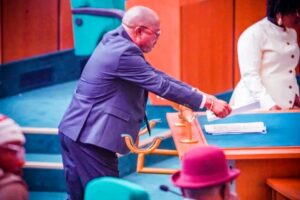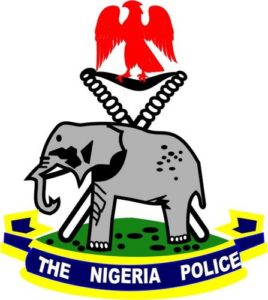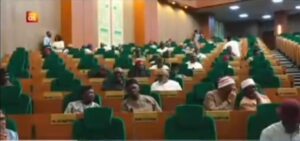
Moreover, the petition requested the immediate suspension of Mr. Segun Agbaje from his position as Group CEO of Guaranty Trust Holding Company Plc to prevent any potential interference with the inquiry. It also urged regulatory bodies such as the Central Bank of Nigeria (CBN) and the Nigeria Deposit Insurance Corporation (NDIC) to safeguard depositors’ funds and protect customers’ investments during this period of uncertainty.
By Abdulrahman Aliagan
In a startling turn of events, the House of Representatives has given the green light to investigate corruption and money laundering allegations against Mr. Segun Agbaje, the Group Chief Executive Officer of Guaranty Trust Holding Company Plc, and the bank itself. The decision comes after a petition submitted by the President of Arewa Consultative Youth Movement, Alhaji Yusuf Kabiru, and presented by Hon. Nnamdi Ezechi, Delta state raised serious concerns regarding the financial practices under Agbaje’s leadership.
The petition, presented to the Speaker of the House, Hon. Tajudeen Abbas, highlighted disturbing allegations, including the fictitious reporting of profits amounting to a staggering one trillion Naira, the use of family members as fronts for illicit activities, corruption, money laundering, and fraudulent practices within GTBank.
The petition called for a thorough investigation into these allegations to uphold justice and restore confidence among investors and citizens in the financial institutions. It emphasized the need for a forensic audit to uncover the truth behind the inflated profit figures and unethical business dealings allegedly orchestrated by Agbaje and his associates.
Moreover, the petition requested the immediate suspension of Mr. Segun Agbaje from his position as Group CEO of Guaranty Trust Holding Company Plc to prevent any potential interference with the inquiry. It also urged regulatory bodies such as the Central Bank of Nigeria (CBN) and the Nigeria Deposit Insurance Corporation (NDIC) to safeguard depositors’ funds and protect customers’ investments during this period of uncertainty.
The Speaker, Rt. Hon. Tajudeen Abbas, has referred the petition to the House Committee on the Public Petition for a thorough investigation. The gravity of the allegations and the call for a forensic audit underscore the atrocity of the situation at GTBank and the urgent need to address these alarming claims of corruption and financial misconduct.
As the investigation unfolds, the future of GTBank and the fate of its embattled GMD, Segun Agbaje, hang in the balance, awaiting the truth to be uncovered and justice to be served.
Power Play and Press Suppression
In a disturbing tale of power, influence, and alleged press suppression, four Nigerian journalists found themselves at the center of a media storm. Their crime, they published a story that questioned Guaranty Trust Bank’s (GTBank) inflated profits, favoritism towards the bank’s Group CEO’s sister, and his high-handed management style, which is the subject matter in the ongoing investigation by Nigeria’s House of Representatives.
The journalists were arrested by Nigeria Police Force, allegedly on the orders of GTBank’s CEO, Mr. Segun Agbaje, they were arraigned, Friday at the Federal High Court, Ikoyi, Lagos, and remanded at Ikoyi Correctional Center till October 4th on charges bothering on cyberstalking and spreading false information, with claims that their report insulted the CEO of GTCO Plc.
However, this incident raises grave concerns about press freedom and the rule of law. The Nigerian Guild of Investigative Journalists, NGIJ intervened, seeking an amicable settlement of the matter. Notable individuals attempted to mediate on the matter but to no avail.
Media Response
The media’s response is equally disturbing as some major newspapers initially reported the resolution by the House of Representatives to probe the allegations against GTCO, only to delete the report online, leaving behind faint links. This has raised questions about the independence of Nigeria’s press and the influence of powerful individuals and organizations.
Police Unlawful Arrest and Detention
The police’s Gestapo-style arrest, without registering the arrests with local authorities, has been condemned by the Kwara and Ogun states councils of the Nigeria Union of Journalists (NUJ), raising questions on breach of the journalists’ fundamental human rights, particularly as they were kept in police custody for over 48-hour detention limit stipulated by Nigerian law.
Cautions on ‘Incessant’ Arrest and Detention of Journalists
On the 11th of July, thecable.ng reports that the House of Representatives asked security agencies to stop the “incessant” arrest and detention of journalists. The lower legislative chamber passed the resolution during plenary, following the adoption of a motion of urgent public importance titled: ‘Need to Curtail the Incessant and Unlawful Arrest and Detention of Journalists by Law Enforcement Agencies’.
According to the report, “The motion that was sponsored by Clement Jimbo, an All Progressives Congress (APC) lawmaker representing Abak/Etim Ekpo/Ika federal constituency of Akwa Ibom, noted that there has been a spike in the clampdown on journalists by security operatives in the last one year.
“Moving the motion, Jimbo said press freedom is a fundamental right enshrined in the constitution and must be obeyed.
“The lawmaker said journalists are being “unlawfully arrested, detained, and harassed” for carrying out their professional duties by law enforcement agencies “relying on the offense of cyber-stalking within the Cybercrimes Act, 2015”.
“The lawmaker said journalists are being “unlawfully arrested, detained, and harassed” for carrying out their professional duties by law enforcement agencies “relying on the offense of cyber-stalking within the Cybercrimes Act, 2015”.
“Jimbo told his colleagues that the frequent arrest of journalists may limit investigative and independent journalism.
“The motion was unanimously adopted when it was put to a voice vote by Tajudeen Abbas, speaker of the house.
“Consequently, the house said protecting the rights of journalists is not only important for upholding democracy but also for safeguarding the principles of free speech and human rights.
The Green Chamber asked the police and other law enforcement agencies to “cautiously and democratically rely on section 24 of the Cybercrime Act 2015 as amended and/or charge anyone, including journalists, to court if they have violated any law of the land instead of depriving them of their constitutional right”.
“The lower legislative chamber also resolved to conduct inquiries into recent cases of detention of journalists and engage in diplomatic efforts to pressure the government to respect press freedom. The house mandated the committees on national security to ensure compliance.” The Cable reports.
Similarly, on the 6th of August, the Committee to Protect Journalists called on Nigerian authorities to investigate reports that dozens of journalists were assaulted, harassed, and detained while covering cost-of-living protests, which began on August 1.
According to the report, “CPJ is investigating multiple incidents including one in the capital Abuja on August 3, where masked security forces fired bullets and teargas at several journalists wearing “Press” vests and their media-branded cars at the national stadium.
“Attacks on the press have been reported across the country since July 31, including by unidentified assailants who smashed the windows of a Channels Television-branded bus carrying 11 journalists and a car carrying two journalists in the northern city of Kano and others who assaulted journalists while they were reporting in southern Delta State, as well as police arrests of reporters in Maiduguri in northeastern Borno State
“Attacks on the press have been reported across the country since July 31, including by unidentified assailants who smashed the windows of a Channels Television-branded bus carrying 11 journalists and a car carrying two journalists in the northern city of Kano and others who assaulted journalists while they were reporting in southern Delta State, as well as police arrests of reporters in Maiduguri in northeastern Borno State.” It said.
Other Cases of Arrest of Journalists
“In February, Kasarachi Aniagolu, a journalist with the Whistler Newspaper in Abuja, was arrested and detained for several hours. In March, Segun Olatunji, then editor of FirstNews, was abducted in Lagos.
“On May 1, Daniel Ojukwu, a journalist with the Foundation for Investigative Journalism (FIJ), was detained by the police for 10 days after he was “abducted” by officers in Lagos.
“On May 14, Jamil Mabai, a freelance journalist, was detained by the Katsina Hisbah religious police after being invited to “interview their spokesperson”.
“On May 23, Madu Onuorah, publisher and editor-in-chief of Globalupfront Newspaper, was arrested and detained in Abuja.
“On May 28, the police detained Dayo Aiyetan, executive director of the International Centre for Investigative Reporting (ICIR), and Nurudeen Akewushola, a reporter.
Despite the House of Representative resolution cautioning security agents on the ‘incessant’ arrest and detention of Journalists on the 20th and 25th of September another four Journalists, namely: Rowland Olonishua of The Herald Newspaper, Seun Odunlami of the Newsjaunts, Wale Olurotimi of The National Monitor and Precious Eze were arrested and remanded on the 27th of September in Ikoyi Correctional center till the 4th of October, 2024 by the Federal High Court, Ikoyi Lagos.
It is therefore instructive to note that, journalists play a crucial role in society by informing the public through accurate and unbiased reporting, holding those in power accountable through investigative journalism by promoting transparency and openness in government, institutions and also facilitating public debate and discourse on critical issues as well as protecting democracy and human rights through watchdog journalism. Therefore, Journalists should not be gagged!
Press suppression has far-reaching implications on any society, including the erosion of press freedom, increased authoritarianism and dictatorship, threats to security and stability as well as undermining human rights and democracy. Press Freedom should not be suppressed.
As the Committee on Public Petitions investigates the matter concerning GTCO and its CEO, one thing is clear: this case represents a chilling intersection of power, influence, and alleged press suppression.
The outcome will be a critical test of Nigeria’s commitment to democratic values and the protection of journalists’ rights. Only time will tell if justice will prevail.
Aliagan, an Abuja-based seasoned Journalist, Group Managing Editor, TimeNigeria Magazine, and newly elected President of the Nigerian Guild of Investigative Journalists (NGIJ).












